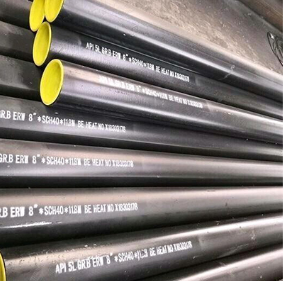Stainless Steel Pipe - A Comprehensive Guide
Stainless steel pipes are an essential component in various industries, from construction to manufacturing. Their durability, corrosion resistance, and versatility make them a popular choice for plumbing, gas lines, and structural applications. In this article, we will delve into the world of stainless steel pipes, exploring their benefits, uses, and maintenance tips.
Benefits of Stainless
Steel Pipes
Corrosion Resistance
Stainless steel pipes are known for their exceptional corrosion resistance, making them ideal for applications where exposure to moisture and harsh chemicals is a concern. This corrosion resistance extends the lifespan of the pipes, reducing the need for frequent replacements.
Strength and Durability
One of the key advantages of stainless steel pipes is their strength and durability. These pipes can withstand high pressure and temperature, making them suitable for demanding industrial environments. Additionally, stainless steel pipes are resistant to impact and abrasion, further enhancing their longevity.
Hygienic Properties
Stainless steel pipes are non-porous, which means they are easy to clean and maintain. This makes them an excellent choice for applications where hygiene is critical, such as in the food and beverage industry. The smooth surface of stainless steel pipes also discourages bacterial growth, ensuring a safe and sanitary environment.
Applications of
Stainless Steel Pipes
Stainless steel pipes
find use in a wide range of industries, including:
Plumbing: Stainless steel pipes are commonly used in plumbing systems due to their corrosion resistance and durability.
Oil and Gas: These pipes are used in oil and gas pipelines, where they can withstand high-pressure environments and corrosive substances.
Construction: Stainless steel pipes are employed in structural applications, such as handrails, balconies, and support beams.
Maintaining Stainless Steel Pipes
To ensure the longevity of stainless steel pipes, proper maintenance is essential. Here are some tips to keep your pipes in top condition:
Regular Inspection: Inspect the pipes for signs of corrosion or damage regularly.
Cleaning: Clean the pipes with a mild detergent and water regularly to remove dirt and grime.
Avoid Harsh Chemicals: Do not use abrasive cleaners or harsh chemicals on stainless steel pipes, as they can cause damage.
Conclusion
Stainless steel pipes are a versatile and durable option for various industrial and commercial applications. Their corrosion resistance, strength, and hygienic properties make them a reliable choice for plumbing, construction, and manufacturing needs. By following proper maintenance practices, you can ensure that your stainless steel pipes continue to perform optimally for years to come.




Comments
Post a Comment